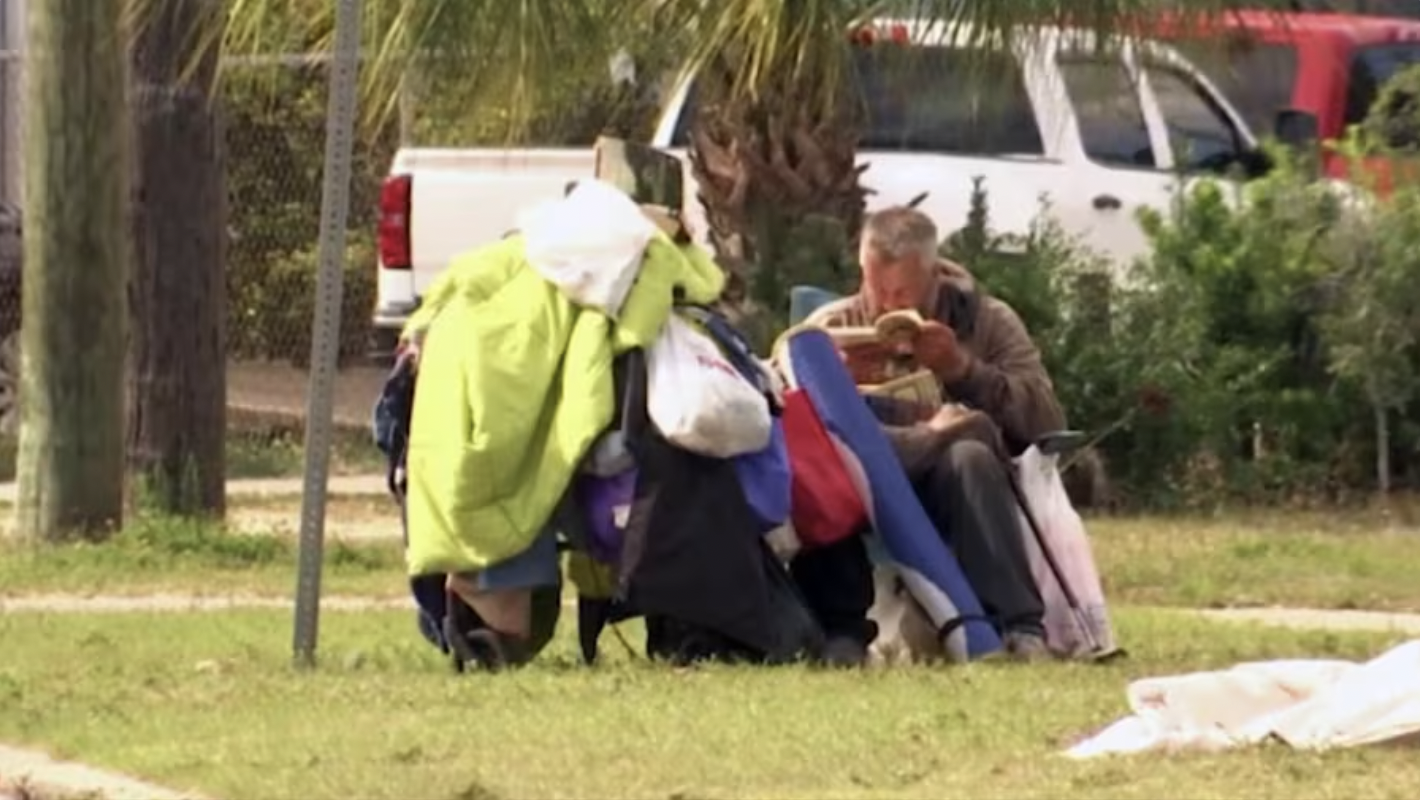This story is part of the News Collaborative of Central Florida, working toward a more informed and engaged Central Florida.
Homeless and mental health advocates in Central Florida are frustrated by a new executive order from President Trump this week intended to crack down on people living on the streets with an emphasis on increased institutionalization and arrests.
In the order, titled “Ending Crime and Disorder on America’s Streets,” the president cited 2024’s Point-In-Time Count numbers nationwide, and targeted unsheltered individuals – 274,224, according to the data from the U.S. Department of Housing and Urban Development.
The order directs U.S. Attorney General Pam Bondi to take actions that make it easier to commit people with mental illness who pose a risk to themselves or the public to “appropriate facilities.”
[RELATED:Stories about homelessness in Central Florida]
The directive would also apply to people who are living on the street and can’t take care of themselves.
This would be a reversal of long-standing legal precedent, set in Olmstead v. LC, where the U.S. Supreme Court ruled people with disabilities had the right to live in the community with necessary support.
“Shifting homeless individuals into long-term institutional settings for humane treatment through the appropriate use of civil commitment will restore public order,” the order read.

The order also directs the attorney general, and the secretaries of health and human services, HUD, and transportation to prioritize states and local governments that crack down on open illicit drug use, urban camping and loitering, or urban squatting.
* Provide funds for encampment removal efforts when state and local resources are “inadequate”
* Ensure detainees with serious mental illness are not released because of a lack of beds at jails or hospitals
* Provide resources to expand drug courts or mental health courts
* Make sure federal funds are not used for “harm reduction” or “safe consumption” programs
* Expand registration and mapping of registered sex offenders who are homeless
Dr. Marni Stahlman, president of the Mental Health Association of Central Florida, said the order’s approach was not only flawed but “fundamentally inhumane,” and said the order just further stoked the fear and stigma of people with mental illness.
“By encouraging broad civil commitment powers and removing judicial oversight, this policy risks reviving a dark era of forced institutionalization, when individuals were warehoused in psychiatric facilities and stripped of their rights. History teaches us that such measures do not promote healing — they cause harm,” Stahlman said.
Martha Are, CEO for the Homeless Services Network of Central Florida, says she’s grateful for any additional resources the administration provides for people who need treatment — especially since Florida consistently ranks near the bottom in terms of funding for behavioral health treatment per capita.
But she also sees the executive order as fundamentally flawed, not least of which because it instructs HUD to deprioritize “housing first” policies and change how it awards grants for housing programs.
The 2024 annual Homelessness Assessment Report to Congress shows evictions, affordable housing and stagnating wages to be the prime drivers of the increase in homelessness across the country, especially after the end of pandemic-era homelessness prevention programs.
“Most of the people currently helped through federal housing programs in our region became homeless because of issues not related to mental health or substance use — such as job loss, injury, serious illness, aging out of foster care, being elderly and on a fixed income, domestic violence, or needing to serve as a full-time caregiver to a child with a severe disability,” Are said.
“One of our fastest growing demographics is seniors 55 and over who can no longer afford their housing,” she added. “Last year alone, nearly 1,000 Central Florida seniors became homeless for the first time.”
Are is concerned about how the order, as well as recent planned changes by the Trump administration, will affect those people as well.
The administration’s proposed 2026 budget cuts more than $45 billion from HUD, according to reporting from our Central Florida media collaborative partners at The Orlando Sentinel. It includes ending funding for permanent supportive housing, which houses the chronically homeless and disabled.
Some 300,00 people across the country rely on those programs. In Central Florida, as many as 1,600 people would be affected, with half of them being veterans.
The drive to end “housing-first” homelessness policies has been a key policy for conservatives and the Trump administration, supported by the Cicero Institute, an organization that also has spearheaded the increase in public camping bans across the country, including here in Florida.
The Cicero Institute makes a distinction between sheltered individuals and unsheltered individuals and says the crisis lies in the latter group.